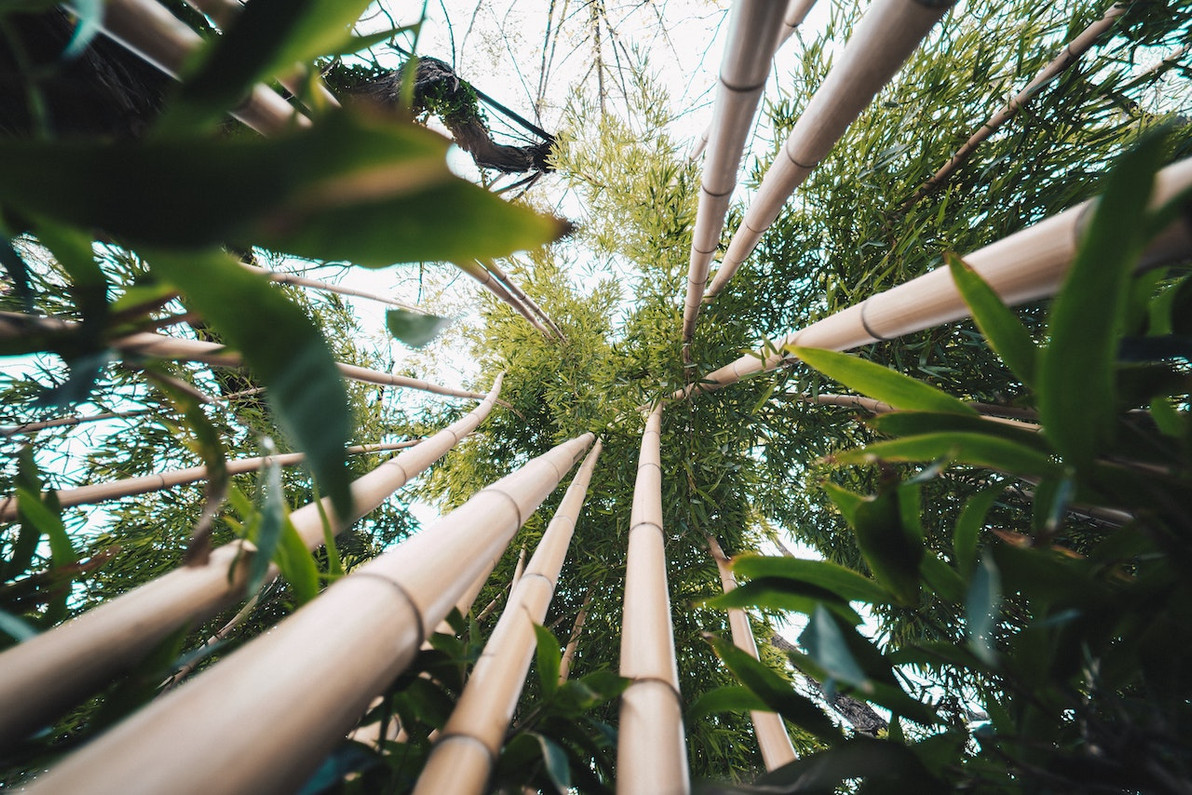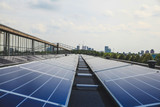Hello, America? Where's Your Bamboo?
Bamboo is a well-known sustainable material and has been taking over the eco-friendly product scene, especially in regards to sustainable fashion, but bamboo products that are entirely made in the U.S.A are still so hard to find. Why is that, and how does that impact the sustainability of bamboo?
Bamboo is hailed for its ability to grow very quickly (up to 3 feet a day!) and the fact that it uses less than 30% of the water that some other plants such as cotton need to grow. It is actually a type of grass and can grow on steeper slopes than many other types of trees or crops can, increasing land use efficiency, and it has an extensive root system that allows it to spread and continue growing new shoots rapidly. Due to this, bamboo does not need chemical fertilizers to grow and requires little or no pesticides, and it can also sequester significantly more CO2 than the same mass of other types of trees. All of this goes to enhance its fully sustainable and natural public image, as well help to make it a more economical choice than many other environmentally friendly materials.
However, this miracle plant does have one significant downside: it is rarely produced in the United States. Bamboo is not a native plant to most of the U.S, often even being locally prohibited since it can spread so quickly and easily. It is sometimes considered invasive to the point that many townships ban the planting of it and severely fine anyone who is caught with it on their property. The United States does not yet officially produce bamboo commercially, with the first ever commercial bamboo plantation in the U.S only being harvested for the first time as recently as 2019. The main reason for this is simply that bamboo is much more suited to tropical or warmer climates as seen in China or Vietnam than those found in the majority of the United States that is suitable for large-scale crop growth, making it harder and more costly to grow.
This therefore leaves China as the largest producer or exporter of bamboo, lowering the sustainable quality of the material. Although bamboo does not require pesticides or fertilizers to grow, some countries such as China have much lower environmental standards to block the use of chemicals that may be harmful to the environment or to our health. They often may have less stringent legal systems regarding workplace rights of health and safety, meaning that companies may sometimes take advantage of the absence of laws or their enforcement and increase the harm to their environment and their workers in the name of profit. Any products coming from China, although often coming at cheaper prices due to such less stringent environmental and workplace standards, also come with the environmental cost of international shipping. Shipping anything overseas, including bamboo shoots or other bamboo fiber materials and products, has a huge carbon footprint as cargo ships use a heavy more carbon-intensive type of fuel. On top of creating significant amounts of air pollution, they also contribute to water pollution that harm aquatic animals and to the spread of invasive species that could threaten biodiversity.
The bottom line is that the United States needs to increase their production of commercial bamboo in the areas and with the proper species that do grow naturally or efficiently to expand the bamboo market nationally, making it truly sustainable as possible and possibly even cheaper without the extra shipping costs. We at J. H. Appleseed vow to do our part in continually searching out American brands that grow and produce their own bamboo products and to always offset the carbon footprint of all of our shipping, regardless of origin. Currently we do stock a few bamboo products from companies we trust that were made overseas with sustainable and social standards. We believe that the sustainability benefits of bamboo combined with the fact that we automatically offset all of our carbon emissions (including shipping) can make up for the environmental costs in such cases, and we are always seeking new options. We also know that with your help, increasing consumer demand for sustainable bamboo products in the United States will also eventually expand the market and incentivize more companies to start producing domestic bamboo goods that are truly eco-friendly, and we look forward to that eventuality.
Recent Posts
-
Air Quality Conundrum in Delhi and the Challenges of Environmental Science
The headline of a story published on CBS news on November 14th of this year read that residents of t …Dec 3rd 2024 -
The Importance of Environmental Engineering
In 1854, John Snow (no, not the Game of Thrones character), a physician investigating cholera outbre …Nov 26th 2024 -
A Sustainable and Ethical Thanksgiving
The story of the first Thanksgiving is commonly portrayed as a time when friendly Indians greeted th …Nov 25th 2024




